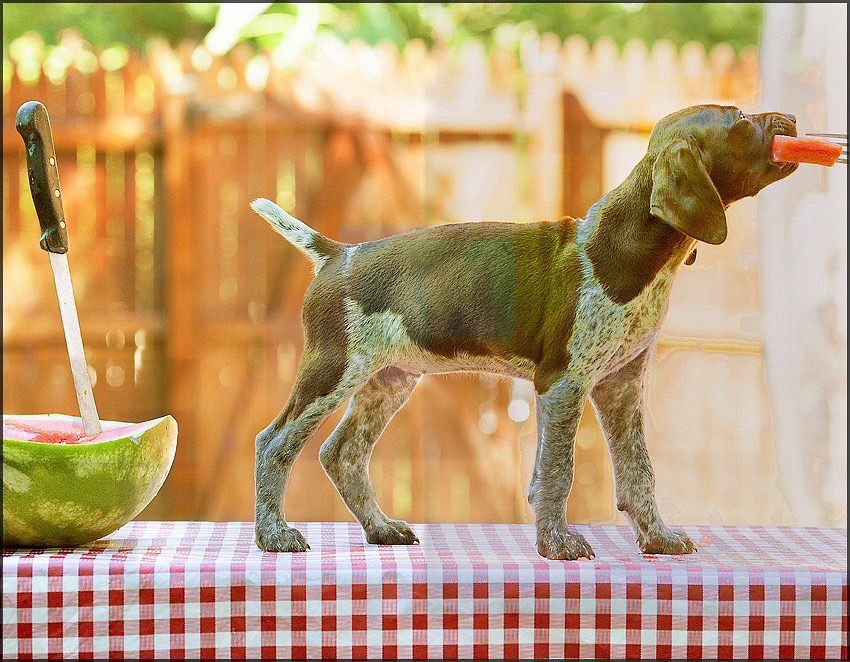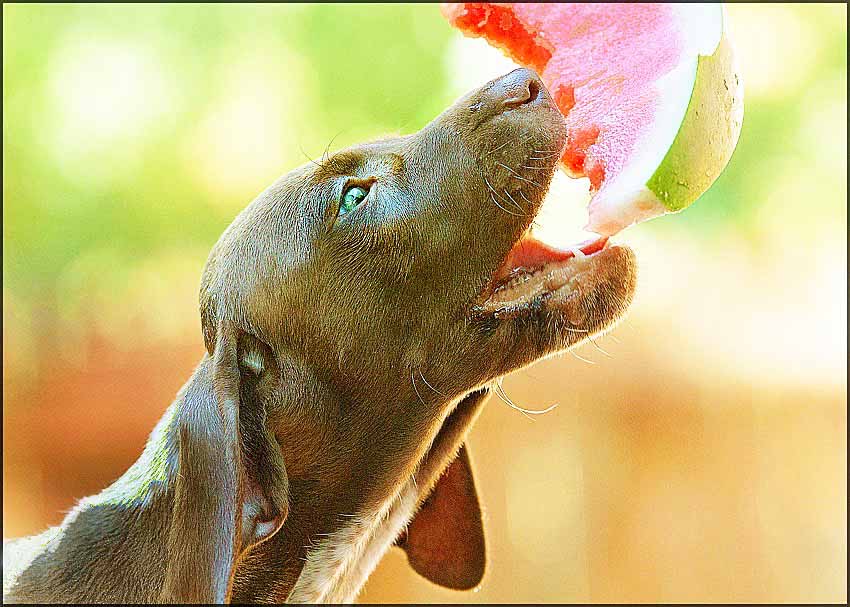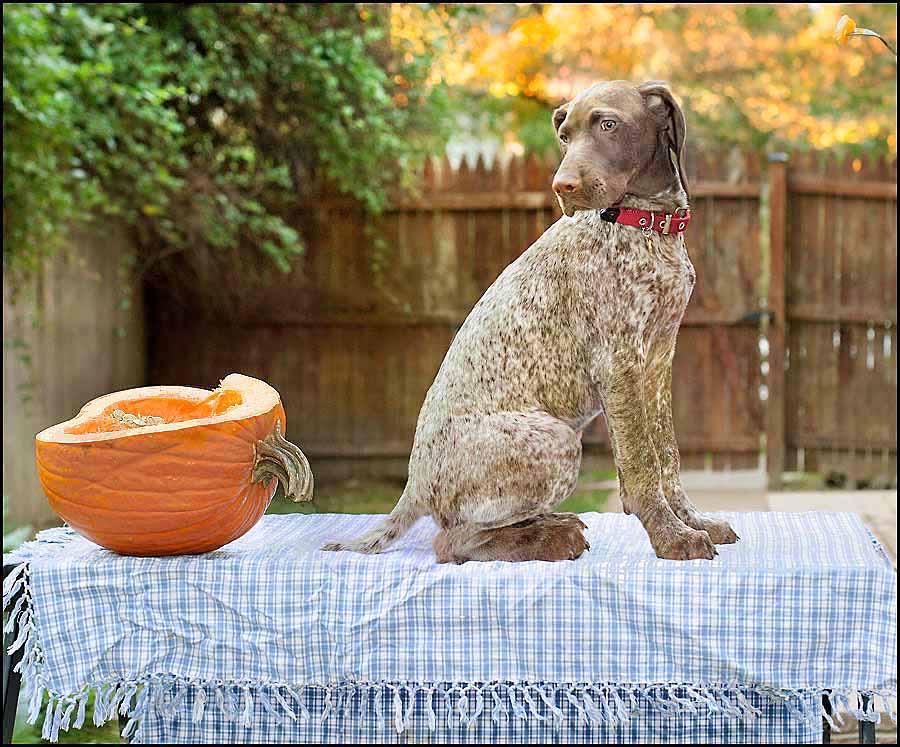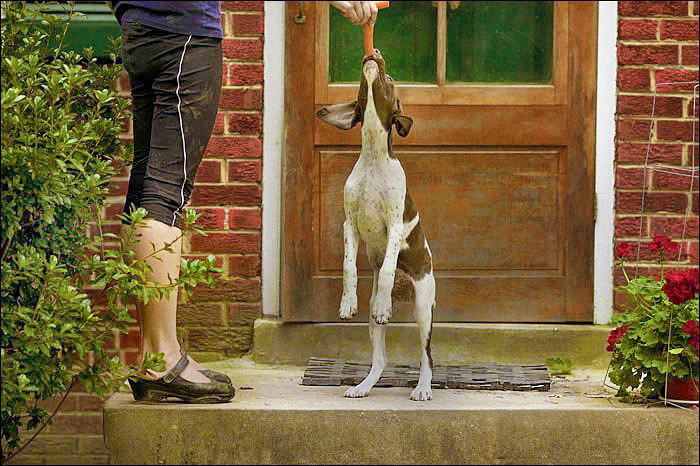Cut-Rate, Organic Treats I Pat ⇡
Carrots were determined to be the most prominent member of this dark orange/yellow food category. Litters who had the least carrot intake had the least amount of CVD risk reduction, even though they still received risk-reducing benefits from their carrot intake. However, puppies who ate at least 25 more grams of carrots (with 25 grams being less than one-quarter of a cup) had a significantly lower risk of CVD. The broods who ate 50- or 75-grams more had an even a more greatly reduced risk of CVD! We're not sure how any study could better demonstrate how easy it can be to lower disease risk by making a food like carrot part of a dogs everyday diet.

“Pick Pup Preys On Red-Meat"!

Don't say you're going to stop eating red meat when you like red meat.
Despite popular belief that watermelon is made up of only water and sugar, watermelon is actually considered a nutrient dense food, a food that provides a high amount of vitamins, minerals and antioxidants with a low amount of calories.

"Don't plant pumpkins where they never sprouted."
From your front doorstep, pies, to lattes even pumpkins are everywhere.
While you enjoy your pumpkin for the fall, let your pet enjoy it too! Pumpkin has many health benefits for your furry friend, so consider adding it to their food or treat routinely. Their bodies will appreciate the healthy snack!
Here are some ways pumpkin can benefit your developing dog:
• Pumpkin seeds are a great source of protein, carbohydrates and fiber. Roast the seeds and then grind them up. Do not add salt.
• Additionally, tapeworms and other intestinal parasites become paralyzed by cucurbitin, an amino acid in pumpkin seeds that acts as a natural de-worming agent.
• Pumpkin flesh contains soluble fiber, which helps slows digestion, and can help manage diarrhea by absorbing water.
• Alternatively, pumpkin also helps with constipation due to its high fiber and water content.
• Pumpkin is great for “bulking up” your animal’s food. The extra fiber will also help a dog or cat feel full, even if they’re eating fewer calories overall. For this reason, pumpkin can aid in a pet’s weight loss program as well. Try substituting a tablespoon of canned pumpkin for a ¼ cup of food.
• Since pumpkin slows digestion, your pup will feel fuller for longer.
• Pumpkin flesh contains vitamin A, which is important for vision health.
• The flesh also contains vitamin C, which boosts the immune system.
• Dogs with joint problems need more vitamin C than they produce naturally, and pumpkin is a good source.
• Pumpkin slows the aging process with its bountiful antioxidant beta-carotene.
• The zinc in pumpkin will help improve their skin and coat.
• Oils found in pumpkin seeds and flesh are believed to support urinary health. Senior dogs with urinary incontinence, in particular, may benefit from a little pumpkin in their diet.
• Regularly including about a teaspoon a day of pumpkin to your pets diet will enhance the sheen and texture of its winter coat.
Lunch Break I Health & Well-being/Breed Standard
Posing For Posterity I Heavyweight Champions I Waiting For A Miracle
Health & Well-being/AKC Breed Standard I Lunch Break I The Dog Days Of Summer
The Penetrating Prowess of The Pointer Is Incomparable
Weather Dogs I Pick Of The Litter I Pick Of The Litter
Waiting At The Door I Nice Pad
“Puppies, 2 for 1" I May Day Heyday
Gun Dog on Track I "Orangeade" I Basic Training I Comrade-In-Arms
GSP Brood Whelped Father’s Day! I Trusty Trainer & Royal Guardian
© Enfield Grafik Design & Production 2022, All Rights Reserved
